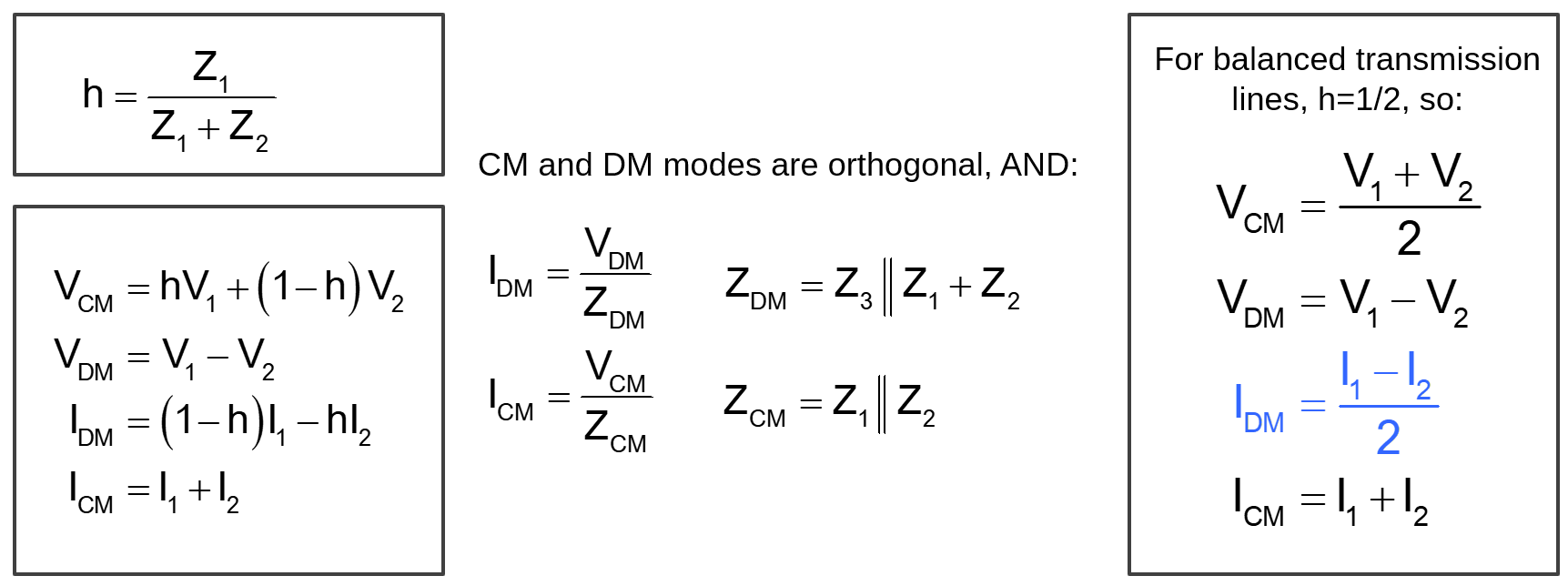EMC Question of the Week: August 24, 2020

In a multiwire transmission line, parallel signal conductors with the same impedance to ground carry currents I1 and I2, respectively, where I1 and I2 point in the same direction. The differential current on the wire pair is
- I1 - I2
- I1 + I2
- (I1 - I2)/2
- (I1 + I2)/2
Answer
The correct answer is "c". Although the differential voltage is just the difference in the voltages of the two wires, the differential current is the difference in the currents divided by 2.
This definition is only valid for balanced transmission line conductors that have the same impedance to ground. When the two conductors have different impedances, a common-mode excitation will place more current on one conductor than the other. In this case, some of the difference in the current on the two conductors is due to common-mode propagation. Generally, the equations for the common-mode and differential-mode components of the signal must be weighted according to the relative impedance of the two conductors (as indicated on the left side in the figure above.
Have a comment or question regarding this solution? We'd like to hear from you. Email us at
